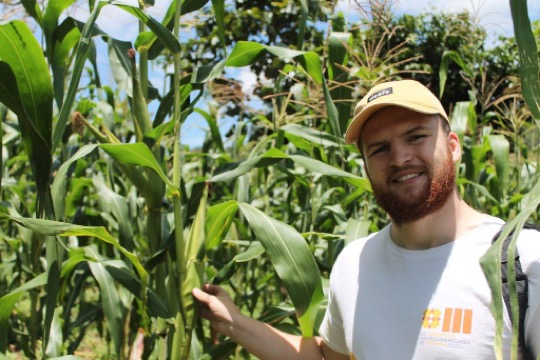COVID-19 brings changes and a new passport

With the return to campus for the spring semester at Castleton, students and faculty are bearing witness to big changes.
COVID-19 has created a very different atmosphere here on campus than many students are used to.
One of the largest changes entering the spring semester is the Castleton Passport. The Passport itself is a small square sheet of paper that has 4 boxes: one for completion of the Spartan Pledge, one for meeting your quarantine before returning to campus, one for completion of your day zero test, and the final box for completion of your day seven test.
It is necessary to have either the physical Passport with you or have a picture on your phone with all four boxes stamped to do pretty much anything on campus. Professors can ask to see the completed passport at any time, and to pick up a package from the mailroom you must show it alongside your Castleton ID.
Matt Deen, a junior on the baseball team, said he tested positive for COVID-19 in late January. He praised the idea of the Castleton Passport.
“It is a great idea to know who has been tested and who hasn’t because some people may be asymptomatic, like myself, and never know that they have it and pass it around,” he said.
But Sam Lawler, a sophomore on the women’s hockey team, said she believes an online version of the passport would be more convenient:
“This would keep an electronic footprint of passports making it easier for staff to know who has and has not been tested,” she said.
Despite a larger number of students returning for the spring semester, the campus is still more dormant than it was a year ago. The number of in-person events on campus have diminished for obvious safety concerns.
Lawler reminisced about some of the events from last year like Bingo and Karaoke in Fireside Cafe. Student government resurrected Bingo early in the fall semester (in a socially distanced manner) and it was a huge hit. There were prizes available and it was a fun way for new students to meet each other and interact in a safe way.
With the rise in positive cases this semester, these events will likely continue to diminish or move to Zoom events. Alex Fernald, a senior from the men’s soccer team, spoke about the difficulties of the lack of on-campus activities.
“There is an inability to socialize with people outside of my dorm, since we are unable to enter other people’s dorms due to the mandate on campus, therefore making it harder to spend time with my friends,” he said.
A lack of social interaction has been proven to cause mental health issues as well as impacting relationships with our friends.
During the pandemic, students’ phones and laptops have become their best friends. They go on Zoom calls every day to attend class, and converse with friends via FaceTime or through texts.
Students say it is incredibly difficult for those not involved in sports to make friends or increase their friend group this year. In the Fall, the majority of the parking lots were empty and no one was walking around near the academic buildings on campus.
Deen, Lawler and Fernald all said the lack of a college atmosphere was the largest difference from previous years.
In his most recent email, Dean of Students Dennis Proulx reported a total of 3,316 COVID-19 tests administered to students with 41 positive cases as a result.







